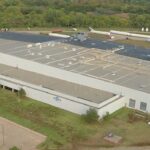
Leidos [LDOS] can better leverage prior acquisitions, some of which have not fulfilled their original business case, the company’s financial performance at times has been subpar and it needs more “quality wins” to grow its backlog, which will be the leading indicator of future sales gains, Tom Bell, Leidos’ new CEO, said on Tuesday. In addition to outlining several areas of focus for improvement, Bell also said Leidos is in the process of a “strategic sharpening,” which will result in…

 By
By 











